
Vitosha Mountain: The Majestic Jewel of Bulgaria
Vitosha Mountain, a stunning natural wonder, towers over the city of Sofia, Bulgaria's vibrant capital. This magnificent mountain is part of the Vitosha Nature Park, the oldest nature park in the Balkans. It offers a perfect blend of natural beauty, rich history, and outdoor activities for every type of traveler. One of Vitosha’s most striking features is its accessibility. Just a short drive from Sofia, it provides a quick escape from the hustle and bustle of city life. The mountain is crisscrossed with numerous hiking trails, catering to both novice hikers and seasoned adventurers. Cherni Vrah, the highest peak, stands at 2,290 meters and offers breathtaking panoramic views of Sofia and the surrounding landscape. Vitosha is not just a summer destination. During winter, it transforms into a snowy paradise, perfect for skiing, snowboarding, and other winter sports. The Aleko Ski Center is a popular spot, equipped with ski runs of varying difficulty levels and modern facilities. After a day on the slopes, visitors can enjoy the warmth of cozy mountain huts and traditional Bulgarian cuisine. Nature lovers will find Vitosha Mountain a haven with its diverse flora and fauna. The park is home to many rare and protected species, making it an excellent spot for birdwatching and nature photography. The Duhlata Cave, the longest cave in Bulgaria, is another must-visit attraction, offering an incredible underground adventure. Whether you are seeking adventure, relaxation, or a connection with nature, Vitosha Mountain provides an unforgettable experience that showcases the best of Bulgaria's natural beauty and cultural heritage.
Local tips in Vitosha Mountain
- Visit during weekdays to avoid weekend crowds, especially in the popular hiking and skiing areas.
- Wear layers and bring weather-appropriate clothing, as mountain weather can change quickly.
- Check the local weather and trail conditions before heading out, especially during winter.
- Carry some cash, as not all mountain huts and facilities accept credit cards.
- Download a map of the trails or use a GPS app as cell service can be spotty in some areas.
Vitosha Mountain: The Majestic Jewel of Bulgaria
Vitosha Mountain, a stunning natural wonder, towers over the city of Sofia, Bulgaria's vibrant capital. This magnificent mountain is part of the Vitosha Nature Park, the oldest nature park in the Balkans. It offers a perfect blend of natural beauty, rich history, and outdoor activities for every type of traveler. One of Vitosha’s most striking features is its accessibility. Just a short drive from Sofia, it provides a quick escape from the hustle and bustle of city life. The mountain is crisscrossed with numerous hiking trails, catering to both novice hikers and seasoned adventurers. Cherni Vrah, the highest peak, stands at 2,290 meters and offers breathtaking panoramic views of Sofia and the surrounding landscape. Vitosha is not just a summer destination. During winter, it transforms into a snowy paradise, perfect for skiing, snowboarding, and other winter sports. The Aleko Ski Center is a popular spot, equipped with ski runs of varying difficulty levels and modern facilities. After a day on the slopes, visitors can enjoy the warmth of cozy mountain huts and traditional Bulgarian cuisine. Nature lovers will find Vitosha Mountain a haven with its diverse flora and fauna. The park is home to many rare and protected species, making it an excellent spot for birdwatching and nature photography. The Duhlata Cave, the longest cave in Bulgaria, is another must-visit attraction, offering an incredible underground adventure. Whether you are seeking adventure, relaxation, or a connection with nature, Vitosha Mountain provides an unforgettable experience that showcases the best of Bulgaria's natural beauty and cultural heritage.
When is the best time to go to Vitosha Mountain?
Iconic landmarks you can’t miss
South Park
Explore the lush landscapes and vibrant atmosphere of South Park, Sofia's serene urban oasis perfect for relaxation and recreation.
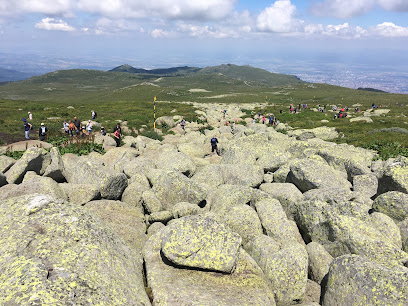
Patriarchal Cathedral of St. Alexander Nevsky
Discover the breathtaking beauty and historical significance of the Patriarchal Cathedral of St. Alexander Nevsky in Sofia, Bulgaria's iconic landmark.
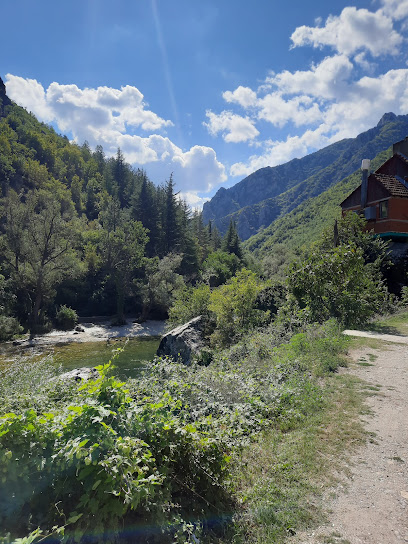
Rila Monastery
Discover Bulgaria's spiritual heart at the Rila Monastery, a UNESCO World Heritage site nestled in the Rila Mountains. A symbol of Bulgarian history and culture.
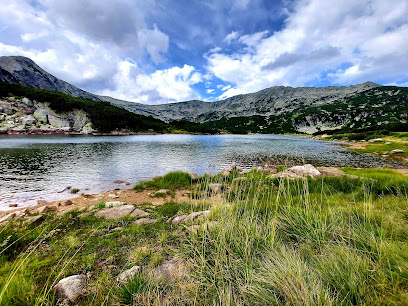
Vitosha Nature Park
Explore Vitosha Nature Park, a natural gem near Sofia offering breathtaking views, diverse wildlife, and endless outdoor adventures.
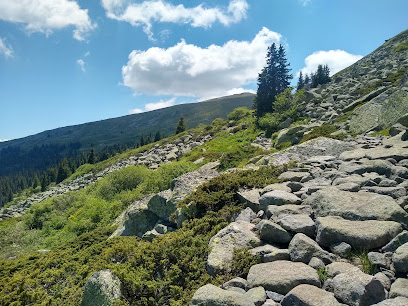
Aleko hut
Discover the charm of Aleko Hut in Vitosha Mountain – a perfect blend of adventure, culture, and stunning natural beauty just outside Sofia.
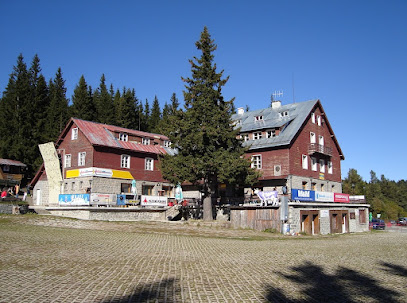
Boyana Church
Explore the artistic and historical marvel of Boyana Church, a UNESCO World Heritage site in Sofia, showcasing stunning medieval frescoes and serene surroundings.
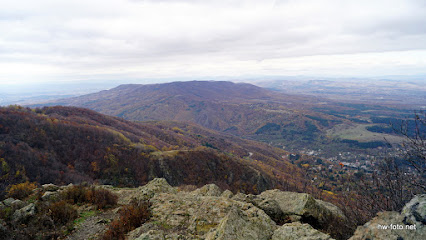
Kambanite (The Bells) Park
Explore Kambanite Park, a unique blend of nature and culture in Sofia, Bulgaria, home to an extraordinary collection of bells from around the world.
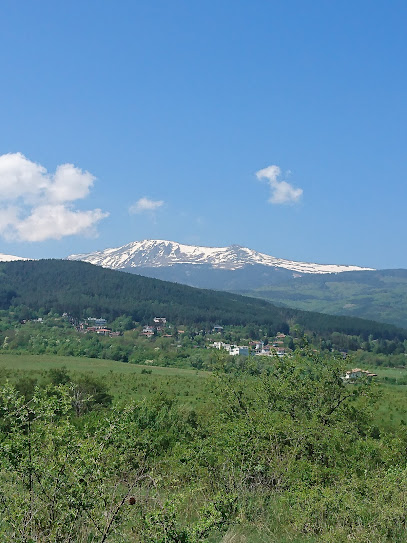
Golden Bridges
Explore the breathtaking Golden Bridges in Sofia, a must-visit hiking area showcasing Bulgaria's stunning natural beauty and serene landscapes.
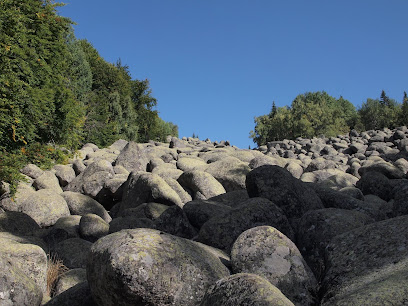
National Museum of History
Explore Bulgaria's rich history at the National Museum of History, showcasing a vast collection of artifacts from prehistoric to modern times.
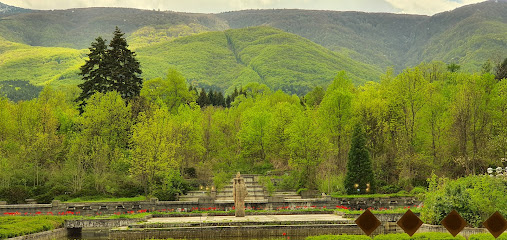
Boyana Residency
Explore the enchanting Boyana Residency, a tranquil park in Sofia, Bulgaria, combining natural beauty with rich historical significance.
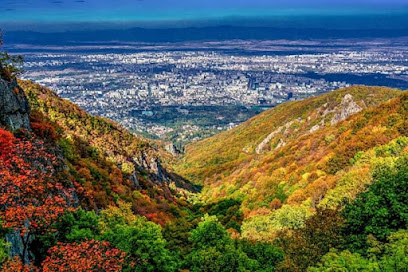
Dragalevski Monastery
Explore Dragalevski Monastery, a historical and spiritual gem near Sofia, known for its beautiful architecture and serene landscapes.
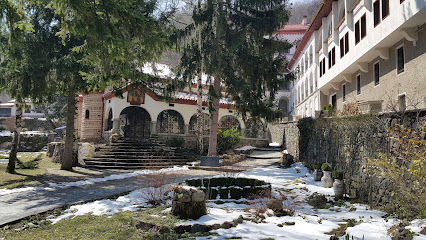
Balkan Mountains
Explore the Balkan Mountains: a historic range offering stunning landscapes, diverse flora and fauna, and rich cultural heritage in the heart of Bulgaria.
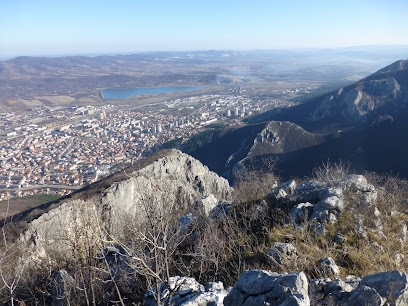
Boyana Waterfall
Experience the enchanting beauty of Boyana Waterfall, a serene hiking area in Vitosha Mountain, perfect for nature lovers and adventure seekers.
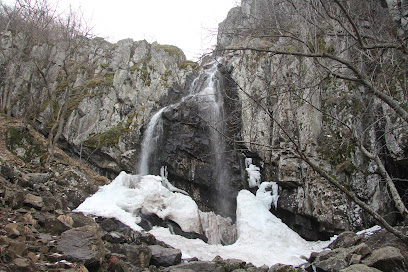
Boyana Waterfall - starting point
Experience the natural beauty of Boyana Waterfall, a must-visit hiking destination near Sofia, renowned for its stunning scenery and tranquil atmosphere.
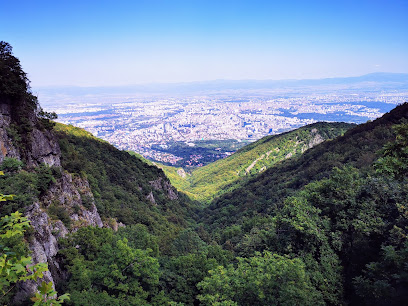
Arboretum
Explore the Arboretum near Sofia, a stunning national park with diverse flora, serene trails, and a perfect escape into nature's beauty.
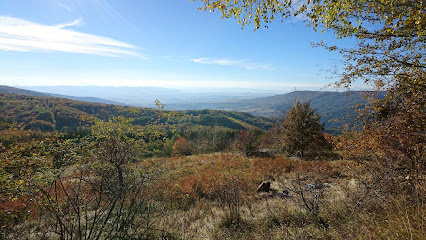
Unmissable attractions to see
Serdika Center
Discover Sofia's premier shopping destination at Serdika Center, featuring a diverse array of shops, restaurants, and entertainment options.

Patriarchal Cathedral of St. Alexander Nevsky
Explore the stunning Patriarchal Cathedral of St. Alexander Nevsky, a breathtaking symbol of Sofia's cultural and religious heritage.
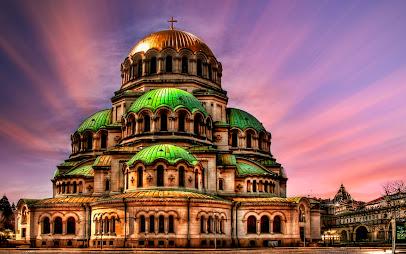
Mall of Sofia
Discover the vibrant shopping experience at Mall of Sofia, featuring diverse brands, delicious dining, and endless entertainment options for every visitor.

Central Sofia Market Hall
Experience the heart of Sofia at the Central Market Hall, where local flavors and traditions meet in a vibrant shopping and cultural hub.
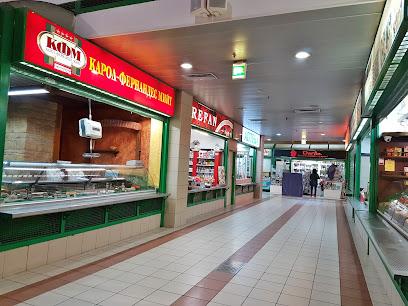
Vitosha Nature Park
Explore the breathtaking landscapes and rich biodiversity of Vitosha Nature Park, a national treasure just outside Sofia, Bulgaria.
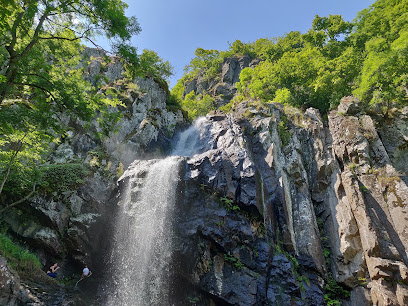
Park Center Sofia
Explore Park Center Sofia: the ultimate shopping destination featuring diverse brands, delightful dining, and vibrant entertainment in the heart of Bulgaria.
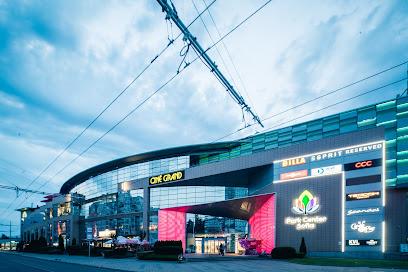
Russian Monument Square
Explore the historical significance and architectural beauty of Russian Monument Square, a must-visit landmark in Sofia, Bulgaria.
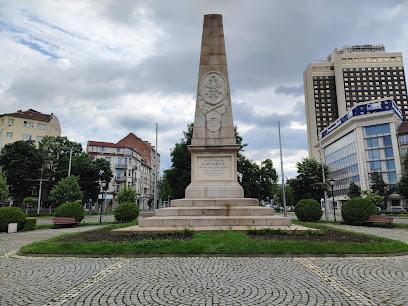
Muzeiko
Explore science through interactive exhibits at Sofia's Muzeiko, the largest children's museum in Eastern Europe, perfect for curious minds of all ages.
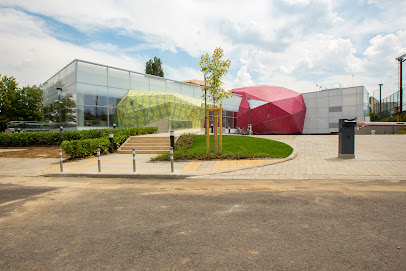
Коколандия - приключенски парк
Discover Kokolandia, Sofia's premier adventure park, featuring playgrounds and attractions amidst lush greenery for a perfect family day out.
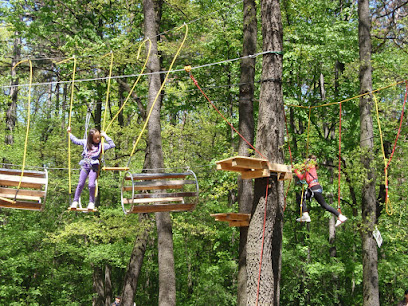
Vegetarian restaurant and bakery Sun Moon
Experience the best of vegetarian cuisine at Sun Moon in Sofia, where every dish is a celebration of health and flavor.
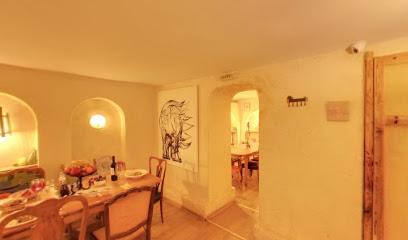
Botanical Garden
Discover diverse plant species from around the globe at Sofia's Botanical Garden, a serene escape at the foot of Vitosha Mountain.
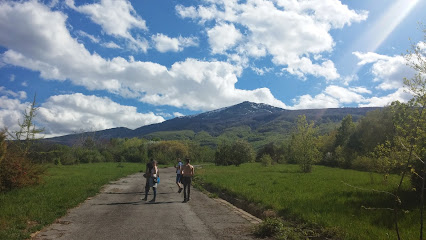
Arboretum
Explore the Arboretum: A stunning national park teeming with diverse flora and serene pathways, perfect for nature enthusiasts and tranquil getaways.
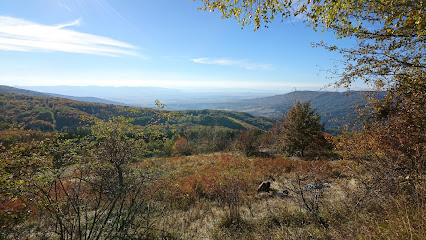
Визи за Русия, Руски културно-информационен център
Explore the vibrant world of Russian culture at the Russian Cultural Information Center in Sofia, where art, history, and literature come alive.
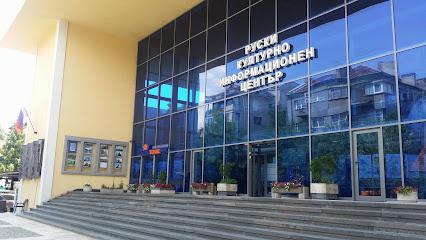
National Gallery
Explore Bulgaria's rich artistic heritage at the National Gallery in Sofia, where art comes alive in a stunning architectural setting.
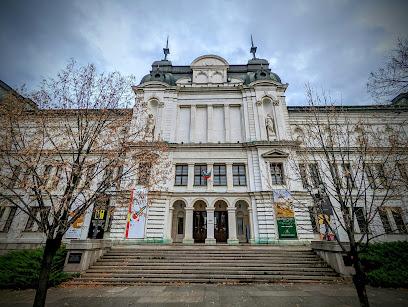
Momina Skala
Discover the breathtaking trails and stunning vistas at Momina Skala, a hiker's paradise nestled in the heart of Bulgaria's mountains.
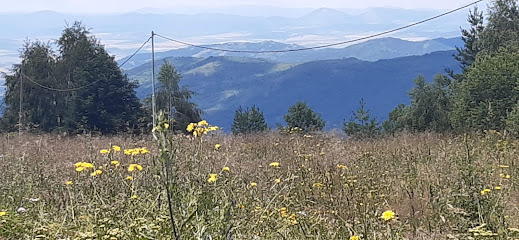
Essential places to dine
Shtastlivetsa restaurant Vitoshka
Discover authentic Bulgarian cuisine at Shtastlivetsa Restaurant on Vitosha Boulevard—an unforgettable culinary journey in Sofia.
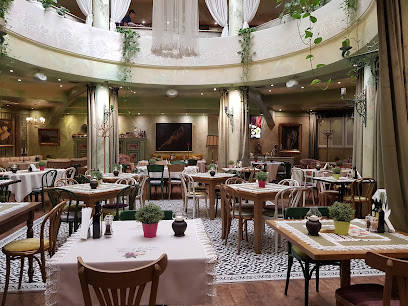
Hadjidraganov's Houses Restaurant
Savor authentic Bulgarian flavors amidst vibrant live music at Hadjidraganov's Houses Restaurant in Sofia.
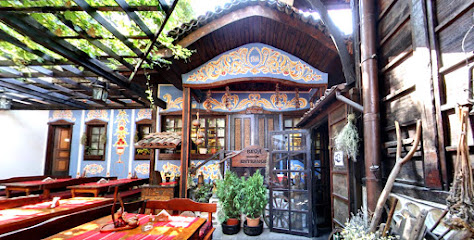
Restaurant Vodenitzata | Вкусна Храна | Достъпни Цени | Безкомпромисно Обслужване
Discover the heart of Bulgarian cuisine at Restaurant Vodenitzata - where tradition meets flavor in a charming setting.
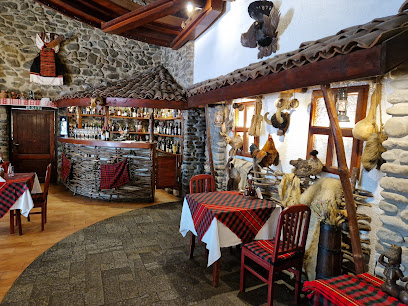
Romance
Experience Sofia's sweetest delights at Romance – where delectable desserts meet charming ambiance amidst stunning mountain views.
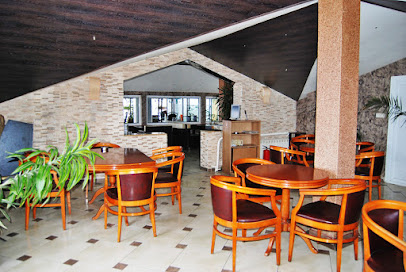
Пицария Ресторант “Чичовци” | Ресторант София | Пицария София
Savor authentic Bulgarian cuisine amidst stunning mountain views at Пицария Ресторант “Чичовци”, your perfect dining destination in Sofia.
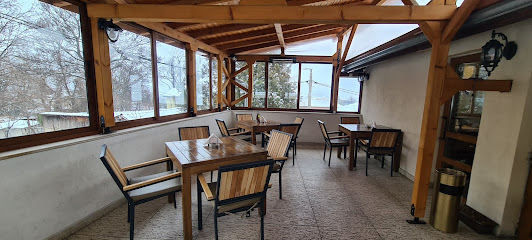
Котилото
Discover authentic Serbian flavors at Котилото in Sofia - where tradition meets culinary excellence in a cozy atmosphere.
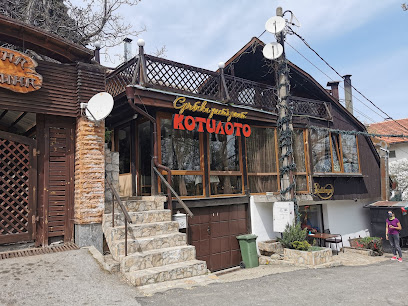
механа „Старата круша“
Savor traditional Bulgarian cuisine in a charming setting at механа „Старата круша“, nestled in Vitosha's scenic beauty.
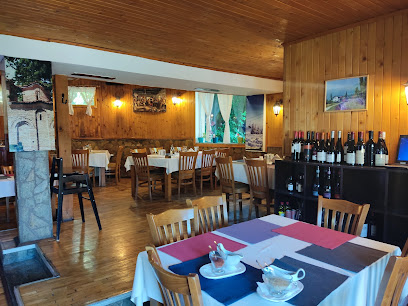
Kelari Greek Cuisine
Experience authentic Greek flavors at Kelari Greek Cuisine in Sofia - a culinary gem offering delectable dishes amidst a charming atmosphere.
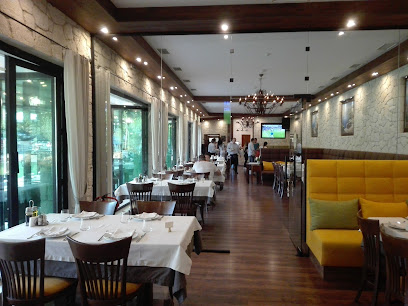
Restaurant “Perfetto“
Experience exquisite dining at Restaurant Perfetto in Sofia – where local flavors meet culinary excellence in an inviting atmosphere.
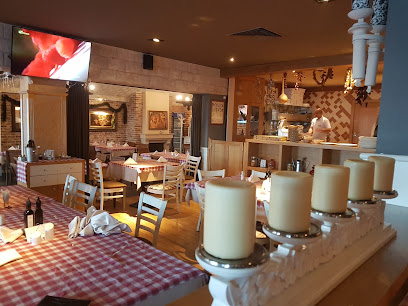
Cinecitta Osteria Italiana
Experience authentic Italian cuisine at Cinecitta Osteria Italiana in Sofia – where every dish tells a story of tradition and flavor.
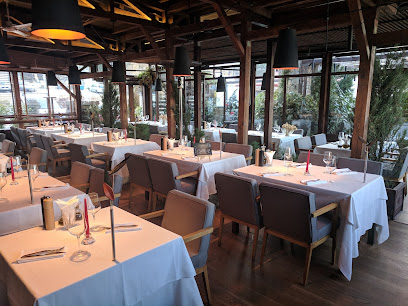
Fatherland 1939
Experience authentic Bulgarian barbecue at Fatherland 1939 on Vitosha Boulevard - a culinary gem in Sofia.
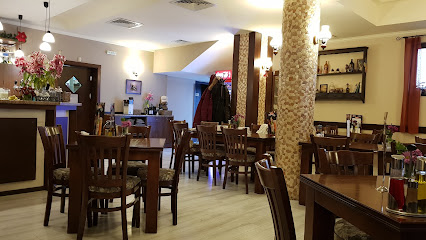
Djorevata Kashta
Experience authentic Bulgarian cuisine at Djorevata Kashta in Sofia – where tradition meets taste in a cozy setting.
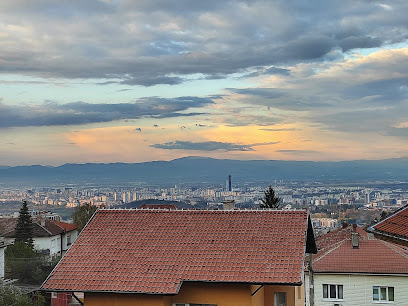
Restaurant Bor & Bar Shisharka
Discover authentic Bulgarian cuisine at Restaurant Bor & Bar Shisharka, where every meal is a delightful experience amidst nature's beauty.
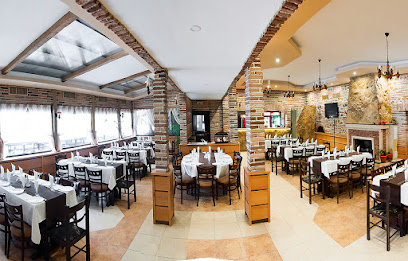
LAZY Dolcevita
Experience authentic Italian cuisine at LAZY Dolcevita in Sofia; where every meal is a journey through Italy's rich culinary heritage.
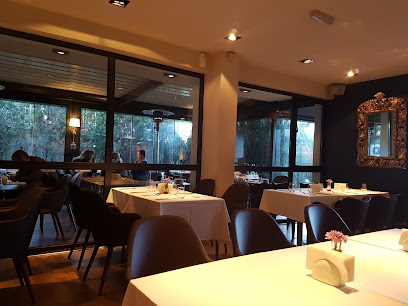
Restaurant 507
Experience authentic Bulgarian cuisine amidst the serene beauty of Sofia at Restaurant 507, where every dish tells a story.
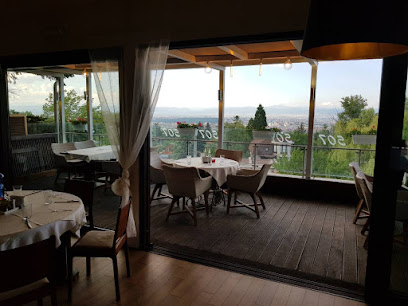
Markets, malls and hidden boutiques
Gifted - Urban Art & Culture Hub
Discover Sofia's artistic pulse at Gifted, an urban art and culture hub featuring unique gifts and local craftsmanship.

Търговски център „Витоша“
Discover Vitosha Mall, Sofia's premier shopping destination, blending retail, dining, and entertainment for an unforgettable experience.
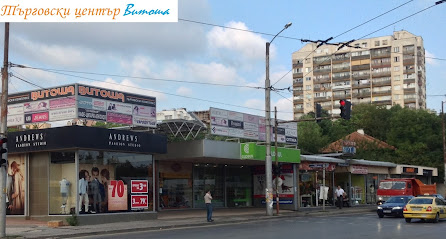
Top Gifts Ltd
Discover unique Bulgarian souvenirs at Top Gifts Ltd on Vitosha Boulevard, where culture meets craftsmanship in the heart of Sofia.
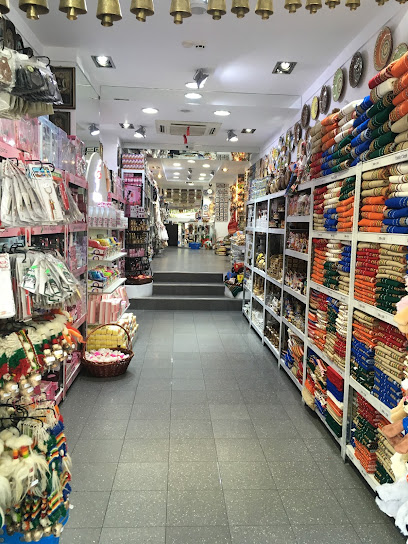
Дженезис - магазин за подаръци, играчки и декорации.
Explore Genesis in Sofia, your go-to gift shop for unique toys, decorations, and local crafts that capture the spirit of Bulgaria.
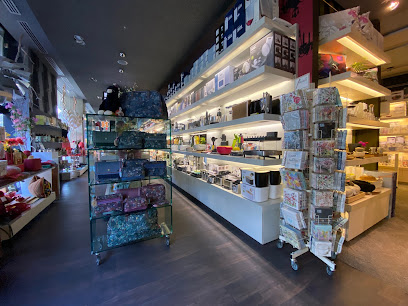
Souvenirs of Bulgaria
Explore the essence of Bulgaria at Souvenirs of Bulgaria, where unique handcrafted treasures await every traveler.
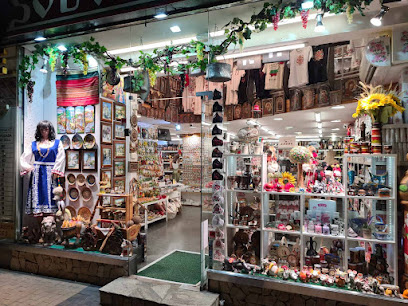
The Dubai Perfumery Ndk -Sofia City Center
Explore The Dubai Perfumery in Sofia for exquisite perfumes and cosmetics, an ideal spot for beauty lovers and gift shoppers alike.
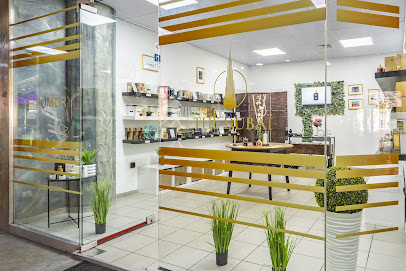
BRAVE CREATION
Explore Brave Creation in Sofia for unique gifts, local art, and stylish fashion accessories that capture the spirit of Bulgaria.

DABOV Specialty Coffee Vitosha
Discover artisanal brews at DABOV Specialty Coffee Vitosha, Sofia's premier coffee shop blending quality, comfort, and culture.
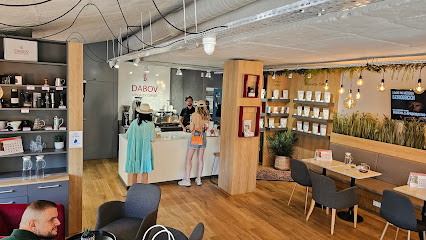
Vantony
Explore Vantony in Sofia, where exquisite craftsmanship meets elegant design in a stunning array of jewelry.
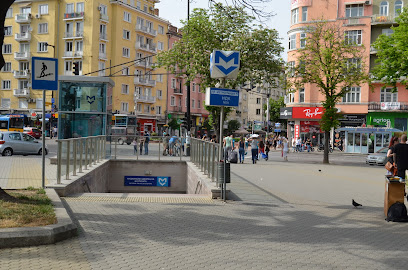
Магазин Таджин
Explore a gourmet paradise at Магазин Таджин in Sofia, offering exquisite spices, teas, nuts, and more for every culinary enthusiast.
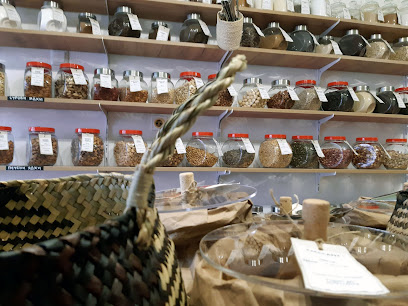
Art Shop Hand Made
Explore the charm of Sofia through unique handmade gifts at Art Shop Hand Made, your destination for authentic Bulgarian artistry.
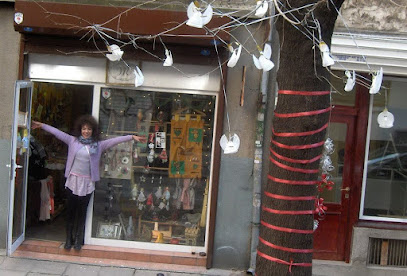
Regalo - магазин за подаръци | сувенири
Explore Regalo in Sofia for unique gifts, jewelry, and party supplies that capture the spirit of Bulgaria and make your travels unforgettable.
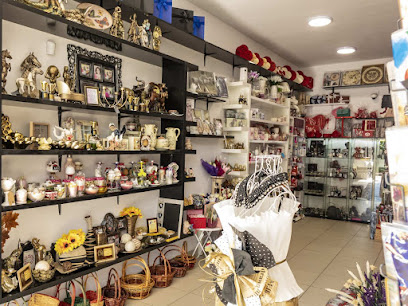
MONDESHKA KEEPSAKES I shop for memories ...
Explore Mondeshka Keepsakes in Sofia for unique wedding souvenirs and gifts that capture the essence of your travels and memories.

Свежарка - подбрано облекло
Explore Свежарка in Rudartsi for a delightful shopping experience featuring clothing, gifts, and local handicrafts in a vibrant marketplace.

Cheese Box Edition
Explore the rich flavors at Cheese Box Edition, Sofia's premier gourmet grocery store and bakery, offering artisanal cheeses and freshly baked delights.
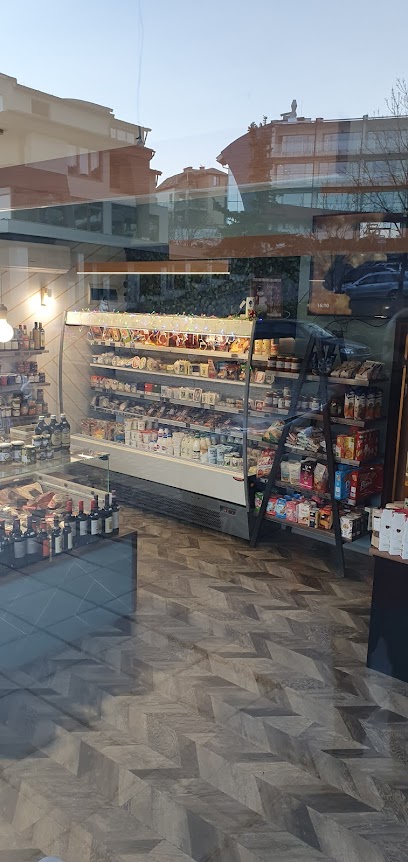
Essential bars & hidden hideouts
Raketa Rakia Bar
Discover the authentic taste of Bulgaria at Raketa Rakia Bar, where traditional drinks meet a vibrant atmosphere in the heart of Sofia.
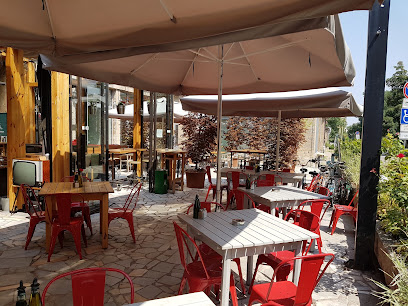
The Cocktail Bar
Experience the vibrant spirit of Sofia's nightlife at The Cocktail Bar, where expertly crafted cocktails and a stylish atmosphere await.
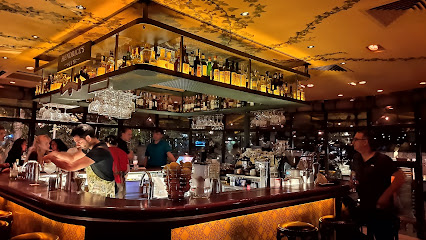
Vitosha Street Bar & Dinner
Discover vibrant dining at Vitosha Street Bar & Dinner in Sofia, where local flavors meet international cuisine in a lively atmosphere.
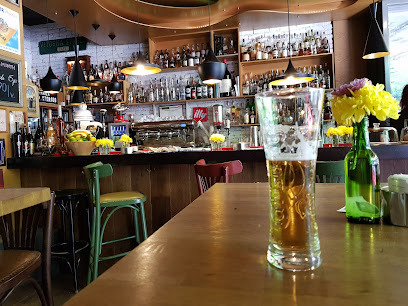
Umbrella Bar
Experience the vibrant energy of Sofia at Umbrella Bar, where grilled delights and refreshing drinks await in a cozy setting.
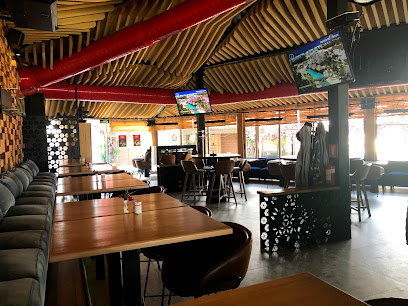
One More Park Bar
Experience the vibrant atmosphere of One More Park Bar in Borisova Gradina, Sofia, where delicious drinks meet beautiful park views.
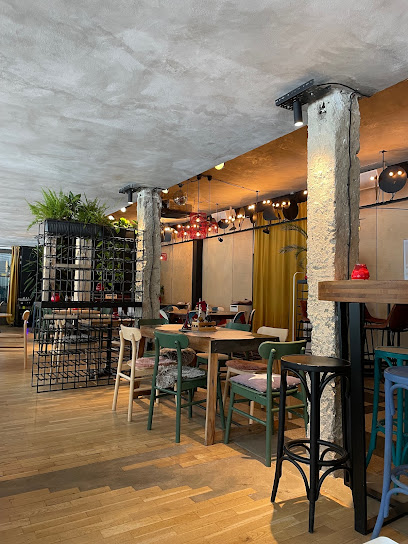
The Corner
Experience the melodic charm of The Corner, Sofia's premier piano bar, offering exquisite cocktails and stunning city views for an unforgettable night.
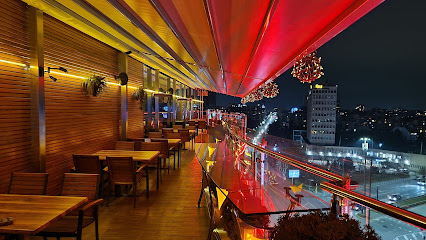
Club Conte
Explore Sofia's nightlife at Club Conte, where vibrant energy meets quality drinks and top DJs in the heart of the city.
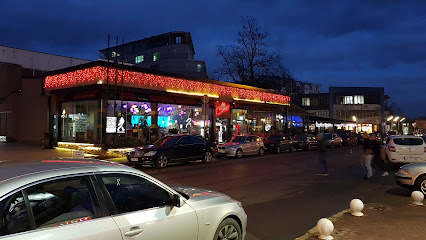
Ozone Skybar & Lounge
Discover the vibrant nightlife of Sofia at Ozone Skybar & Lounge, where stunning views and exquisite cocktails create an unforgettable experience.
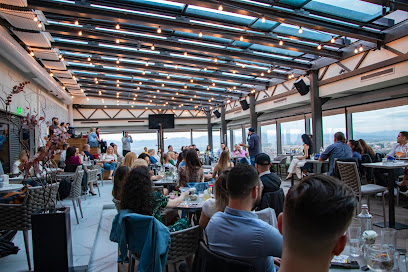
5L Speakeasy bar
Discover the enchanting 5L Speakeasy Bar in Sofia, where expertly crafted cocktails and a cozy atmosphere await your arrival.
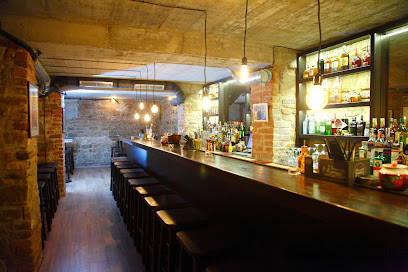
Sense Rooftop Bar
Discover the stunning skyline of Sofia at Sense Rooftop Bar, a chic venue for exquisite cocktails and vibrant nightlife.
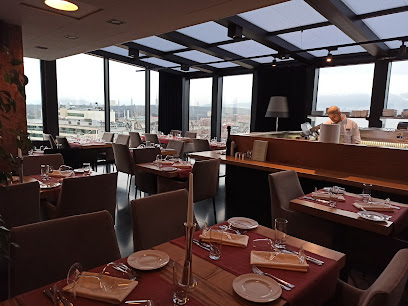
Caché Bar & Cafe
Discover the vibrant atmosphere and delicious offerings at Caché Bar & Cafe, a local favorite in Sofia's Lozenets neighborhood.
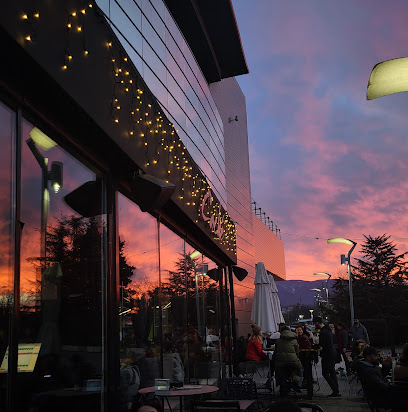
Sputnik Cocktail Bar
Experience Sofia's nightlife at Sputnik Cocktail Bar, where every cocktail tells a story and every visit feels like home.

By the Way
Discover By the Way, Sofia's premier cocktail bar offering an exquisite mixology experience in a cozy atmosphere.
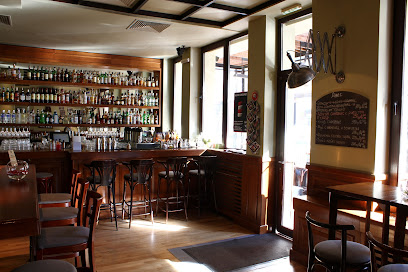
The Clock bar | food
Experience the best of Sofia's nightlife and culinary delights at The Clock Bar, where every visit is a feast for the senses.
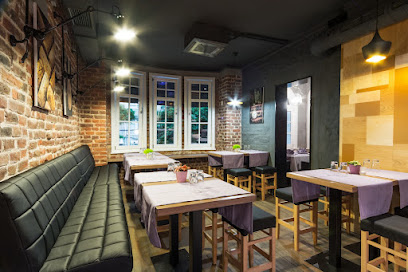
Local Phrases about Vitosha Mountain
-
- HelloЗдравей
[Zdravey] - GoodbyeДовиждане
[Dovizhdane] - YesДа
[Da] - NoНе
[Ne] - Please/You're welcomeМоля
[Molya] - Thank youБлагодаря
[Blagodarya] - Excuse me/SorryИзвинявай
[Izvinyavay] - How are you?Как си?
[Kak si?] - Fine. And you?Добре. А ти?
[Dobre. A ti?] - Do you speak English?Говориш ли английски?
[Govorish li angliyski?] - I don't understandНе разбирам
[Ne razbiram]
- HelloЗдравей
-
- I'd like to see the menu, pleaseБих искал да видя менюто, моля
[Bih iskal da vida menuto, molya] - I don't eat meatНе ям месо
[Ne yam meso] - Cheers!На здраве!
[Na zdrave!] - I would like to pay, pleaseБих искал да платя, моля
[Bih iskal da platya, molya]
- I'd like to see the menu, pleaseБих искал да видя менюто, моля
-
- Help!Помощ!
[Pomosht!] - Go away!Минавай!
[Minavay!] - Call the Police!Обадете се на полицията!
[Obadete se na politsiyata!] - Call a doctor!Обадете се на лекар!
[Obadete se na lekar!] - I'm lostЗагубих се
[Zagubih se] - I'm illБолен съм
[Bolen sam]
- Help!Помощ!
-
- I'd like to buy...Бих искал да купя...
[Bih iskal da kupya...] - I'm just lookingПросто се разглеждам
[Prosto se razglezdam] - How much is it?Колко струва?
[Kolko struva?] - That's too expensiveТова е твърде скъпо
[Tova e tvurde skapо] - Can you lower the price?Можете ли да намалите цената?
[Mojete li da namalite tsenata?]
- I'd like to buy...Бих искал да купя...
-
- What time is it?Колко е часът?
[Kolko e chasat?] - It's one o'clockЕдин час е
[Edin chas e] - Half past (10)Половин час (10)
[Polovin chas (10)] - MorningСутрин
[Sutrin] - AfternoonСледобед
[Sledobed] - EveningВечер
[Vecher] - YesterdayВчера
[Vchera] - TodayДнес
[Dnes] - TomorrowУтре
[Utre] - 1едно
[edno] - 2две
[dve] - 3три
[tri] - 4четири
[chetiri] - 5пет
[pet] - 6шест
[shest] - 7седем
[sedem] - 8осем
[osem] - 9девет
[devet] - 10десет
[deset]
- What time is it?Колко е часът?
-
- Where's a/the...?Къде е...
[Kade e...] - What's the address?Какъв е адресът?
[Kakav e adresat?] - Can you show me (on the map)?Можете ли да ми покажете (на картата)?
[Mojete li da mi pokazhete (na kartata)?] - When's the next (bus)?Кога е следващият (автобус)?
[Koga e sledvashtiyat (avtobus)?] - A ticket (to ....)Билет (до ....)
[Bilet (do ....)]
- Where's a/the...?Къде е...
History of Vitosha Mountain
-
The earliest known inhabitants of the Vitosha Mountain region were the Thracians, an ancient Indo-European people. Archaeological evidence suggests that they settled in the area as early as 5000 BCE. They revered the mountain as a sacred place and built numerous sanctuaries and altars. The Thracian culture left behind a rich legacy of artifacts, including pottery, tools, and jewelry, which have been unearthed in various archaeological sites around Vitosha.
-
During the Middle Ages, Vitosha Mountain became a spiritual retreat for Christian monks and hermits. The Boyana Church, located on the northern slopes, is a prime example of medieval Bulgarian architecture and is renowned for its well-preserved frescoes dating back to the 13th century. This UNESCO World Heritage site reflects the influence of both Byzantine and local traditions. Several other monasteries and chapels, such as the Dragalevtsi Monastery, were also established in this period, contributing to the mountain's religious significance.
-
The Ottoman conquest of Bulgaria in the late 14th century brought significant changes to the Vitosha region. The mountain served as a refuge for Bulgarian rebels and outlaws who resisted Ottoman rule. Folklore from this period is rich with tales of hajduks (freedom fighters) who used the dense forests and rugged terrain of Vitosha as their base of operations. The Ottoman period also saw the construction of several important roads and pathways across the mountain, facilitating trade and travel.
-
The late 19th and early 20th centuries marked the beginning of organized mountaineering in Bulgaria, with Vitosha Mountain becoming a focal point for outdoor enthusiasts. The first documented ascent of Vitosha's highest peak, Cherni Vrah (Black Peak), was made in 1895 by the Bulgarian writer and public figure Aleko Konstantinov. His book 'To the Top' popularized the mountain and inspired many Bulgarians to explore its trails. Today, mountaineering and hiking remain popular activities, with well-marked routes and shelters available for adventurers.
-
In 1934, Vitosha was declared the first nature park in the Balkans, highlighting its ecological and cultural significance. The park was established to protect the mountain's diverse flora and fauna, which include endemic species and ancient forests. Over the decades, conservation efforts have been implemented to preserve the natural beauty and biodiversity of Vitosha. The park is now a cherished destination for nature lovers, offering a variety of recreational activities such as hiking, skiing, and bird-watching.
-
Today, Vitosha Mountain is not only a natural haven but also a cultural hub. The mountain hosts numerous cultural events and festivals throughout the year, celebrating Bulgarian traditions, music, and arts. The annual Vitosha 100K Ultramarathon, a challenging race that attracts athletes from around the world, is a testament to the mountain's enduring appeal. Additionally, the proximity of Vitosha to the capital city of Sofia makes it a popular destination for both locals and tourists seeking a quick escape into nature.
Vitosha Mountain Essentials
-
Vitosha Mountain is located just outside of Sofia, the capital city of Bulgaria. The nearest airport is Sofia International Airport. From the airport, you can take a taxi directly to Vitosha, which takes approximately 30-40 minutes. Alternatively, you can use public transportation: take the metro to Vitosha Metro Station and then transfer to bus number 66 or 111, which will take you close to the mountain.
-
In Sofia, you have several transportation options to get to Vitosha Mountain. Public buses (numbers 66 and 111) operate regularly and are an economical option. Taxis are also readily available and can offer a more convenient and quicker route. For a more adventurous journey, consider renting a car; this allows you more flexibility in exploring the mountain at your own pace. Additionally, there are chair lifts and gondolas available to take you up the mountain, providing scenic views.
-
The official currency in Bulgaria is the Bulgarian Lev (BGN). Most hotels, restaurants, and shops accept credit and debit cards, but it is advisable to carry some cash, especially for small purchases or in more remote areas. ATMs are widely available in Sofia and near the mountain. It is also a good idea to have some smaller denominations for bus fares and tips.
-
Vitosha Mountain is generally a safe destination for tourists. However, it is always important to take standard precautions. Avoid walking alone at night in unfamiliar areas and keep an eye on your belongings, especially in crowded places like bus stations. While there are no specific high-crime areas targeting tourists, it is always best to stay vigilant and aware of your surroundings.
-
In case of emergency, dial 112 for immediate assistance. This number connects you to police, fire, and medical services. There are also mountain rescue services available specifically for Vitosha Mountain. It is recommended to have travel insurance that covers medical emergencies and mountain rescue. For minor health issues, pharmacies can be found in Sofia and near the main access points to the mountain.
-
Fashion: Do wear comfortable and appropriate hiking gear if you plan to explore the trails. Layers are advisable due to changing weather conditions. Religion: While Vitosha Mountain itself does not have specific religious sites, if visiting nearby monasteries, dress modestly. Public Transport: Do be respectful and give up your seat to elderly or disabled passengers. Don’t eat or drink on public transport. Greetings: Do greet people with a warm 'Zdravei' (Hello) or 'Dobar den' (Good day). A handshake is common. Eating & Drinking: Do try local delicacies and accept food offerings graciously. Don’t refuse hospitality, as it is considered impolite.
-
To experience Vitosha Mountain like a local, consider visiting during the weekdays to avoid the weekend crowds. Early mornings offer the most serene experiences. For a unique culinary experience, try the local mountain huts (hizhas), which serve traditional Bulgarian dishes. Engaging with local hikers can provide insights into lesser-known trails and hidden gems. Don't miss the Boyana Waterfall and the Golden Bridges stone river for spectacular natural sights.
Trending Landmarks in Vitosha Mountain
-
South Park
-
Patriarchal Cathedral of St. Alexander Nevsky
-
Rila Monastery
-
Vitosha Nature Park
-
Aleko hut
-
Boyana Church
-
Kambanite (The Bells) Park
-
Golden Bridges
-
National Museum of History
-
Boyana Residency
-
Dragalevski Monastery
-
Balkan Mountains
-
Boyana Waterfall
-
Boyana Waterfall - starting point
-
Arboretum
Nearby Cities to Vitosha Mountain
-
Things To Do in Niš
-
Things To Do in Gjilan
-
Things To Do in Pleven
-
Things To Do in Serres
-
Things To Do in Podujevo
-
Things To Do in Gabrovo
-
Things To Do in Ferizaj
-
Things To Do in Shtime
-
Things To Do in Vushtrri
-
Things To Do in Stara Zagora
-
Things To Do in Mitrovica
-
Things To Do in Haskovo
-
Things To Do in Craiova
-
Things To Do in Kavala
-
Things To Do in Prizren









